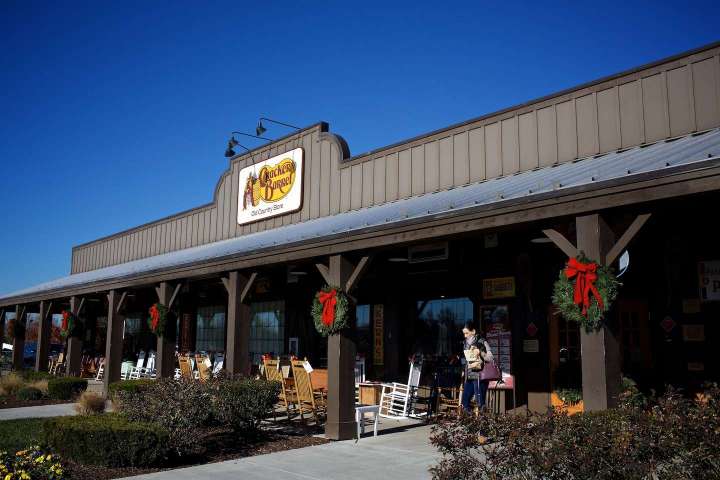One doesn’t normally expect controversy over a corporate Facebook post. Then Cracker Barrel decided to offer vegan sausage.
Cracker Barrel leaders understand an often-forgotten truth of the internet

Some of the company’s customers reacted badly, belligerently proclaiming their love of meat — or even threatening a boycott.
“Get woke, go broke,” read one post.
“You just lost your customer base,” said another.
By Aug. 4, the post had more than 7,000 comments, as all the think pieces it spawned kept informing us. That’s 7,000 comments! On a post about a minor menu addition!
My own social media feeds began to fill with progressive friends pondering the Larger Implications of all this.
Was it a symptom of a movement gone mad? A depressing reminder that Americans are now so blinded by partisanship that we can’t even tolerate another person’s choice of side meat? Was this the bell finally tolling for a once-great nation?
Follow Megan McArdle‘s opinions
FollowNot in the least. Rather, it is yet another sign that social media makes us lose all sense of proportion.
If you read the think pieces, you start to notice that they are all quoting from the same handful of (admittedly unhinged) comments. If you go to the post itself, you will be hard-pressed to find those lunatics among the hundreds of vegetarians thanking Cracker Barrel for finally providing them an option — or the even more numerous liberals who showed up to dunk on MAGA snowflakes who can’t even let someone else eat fake meat.
But even if all 7,000 comments had come from livid conservatives unable to live and let live, that wouldn’t tell us anything except that in a big country, there are always a few cranks who are prepared to get angry about anything you can think of. You can see them all day on social media, inventing new ways to get offended by perfectly normal, innocent activities.
Before social media, these people mostly had to share their crankery in person, unless they could get a local newspaper column or a segment on “60 Minutes.” And Americans knew how to deal with it: We nodded and smiled while Uncle Walter explained that he was never going back to Second Federal Bank because the new bank manager was German, and he hadn’t fought World War II to do his banking with a Nazi.
Then we turned to Aunt Irma and complimented her on how pretty her Jell-O mold looked.
We ignored these explosions because when we had to endure these tirades in person, we had a sense of proportion. Yes, Uncle Walter had crazy opinions. But everyone else we knew chose their bank based on where it was located, or who was offering the best interest rate on savings accounts.
Social media concentrates all the Uncle Walters in one place, where they start to seem like an army. But in fact, their numbers are still insignificant, relative to the 325 million people in the country.
So the next time you see some social media controversy that is supposed to tell us something dire about America, try applying what I like to call the Texas High School Stadium rule.
In the state of Texas, there are 83 high school football stadiums that hold more than 10,000 people. And since 10,000 people is pretty sizable for an internet mob, whenever I am tempted to extrapolate from their behavior to the rest of the country, I ask myself: “Would I care if we were talking about the crowd in one of those stadiums?”
This is a useful corrective for people who are being brigaded by Twitter trolls: Would you still be worried if a crowd of folks in a town you’ll never visit was booing your name?
It’s also pretty useful for executives who find their company at the center of some viral controversy: Would you ever walk into a board meeting and say “Quick, we have to change corporate policy, the Katy Tigers booster squad is really mad!”
And it’s essential for politicians who feel pressured to let Twitter set their agenda: Would you spend all this energy trying to nail down the critical “fans of the Nederland Bulldogs” demographic?
The answers, obviously, are no, no and no. (Unless you happen to be Rep. Randy Weber (R-Tex.), whose district contains Nederland and who is therefore excused from this part of the exam.) Because our brains are wired to deal with groups of people in the real world, we easily grasp this when we think in terms of football stadiums. On the internet, stripped of that physical reality, similar-sized crowds loom much larger than they should.
The folks at Cracker Barrel are the only ones who seem to understand this. They ignored the cranks, politely said that they intended to keep serving meat eaters the same delicious blends of meat byproducts and nitrates, while making a new option available to those who want it. And then they did what the rest of us ought to, and got on with their lives.






